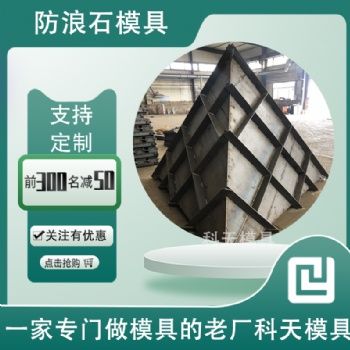|
|
|||||||||||||||||
詳細(xì)介紹
收費(fèi)島模具詳細(xì)使用
不要淋濕和僵硬,。水分硬化的水泥可能會(huì)降低甚至失去原有的強(qiáng)度 因此,已被潤(rùn)濕或硬化的水泥必須過(guò)篩,,并在過(guò)篩后使用,。對(duì)于一碰或一撮粉狀水泥塊,,可用于降低強(qiáng)度等級(jí)。
不要曝光快干。如混凝土或灰泥暴露后操作時(shí),,與水的迅速蒸發(fā),,其強(qiáng)度會(huì)降低或甚至喪失。
不要讓負(fù)溫度凍結(jié),?;炷粱蛏皾{混合后,若受凍,,其水泥不能水化,,其水結(jié)冰膨脹,則會(huì)損壞混凝土或砂漿,。Don’t get wet and stiff. WATER-HARDENED CEMENT MAY reduce or even lose its strength, so wet or hardened cement must be sieved and used after sieving. For a touch or pinch of powdered cement block, can be used to reduce the strength level. Don’t expose it. Just do it. When exposed to concrete or mortar, such as when operating after the rapid evaporation of water, its strength will be reduced or even completely lost. Do not let the negative temperature freeze. Concrete or mortar mixed, if frozen, its cement can not hydration, its water ice expansion, it will damage concrete or mortar.
不要忽熱忽熱,。如果經(jīng)常在高溫條件下,會(huì)有強(qiáng)度損失,,這是由于高溫條件下,,一些原材料在高溫條件下也會(huì)分解或體積膨脹。
不要像水一樣厚,。人們往往忽視了用水量對(duì)混凝土強(qiáng)度的影響,,為了便于澆筑,有時(shí)不認(rèn)真執(zhí)行配合比,,把混凝土拌得很薄,。當(dāng)多余的水分蒸發(fā)時(shí),會(huì)在混凝土中留下許多孔隙,,從而降低混凝土的強(qiáng)度,。
不被酸腐蝕。與某些物質(zhì)酸性物質(zhì)將在水泥反應(yīng),,松散產(chǎn)品,,膨脹的體積,水容易水解粉碎,。
It’s hot and hot. If often under high temperature conditions, there will be loss of strength, this is due to high temperature conditions, some raw materials under high temperature conditions will also decompose or volume expansion. Not as thick as water. People often ignore the influence of water consumption on the strength of concrete, in order to facilitate pouring, sometimes do not seriously carry out the mix proportion, mix the **ery thin. When Excess Water evaporates, it leaves many pores in the concrete, reducing its strength. Not corroded by acid. With certain substances acidic substances will react in the cement, loosening the product, expanding the volume and making the water easier to hydrolyze and crush.
不要淋濕和僵硬,。水分硬化的水泥可能會(huì)降低甚至失去原有的強(qiáng)度 因此,已被潤(rùn)濕或硬化的水泥必須過(guò)篩,,并在過(guò)篩后使用,。對(duì)于一碰或一撮粉狀水泥塊,,可用于降低強(qiáng)度等級(jí)。
不要曝光快干。如混凝土或灰泥暴露后操作時(shí),,與水的迅速蒸發(fā),,其強(qiáng)度會(huì)降低或甚至喪失。
不要讓負(fù)溫度凍結(jié),?;炷粱蛏皾{混合后,若受凍,,其水泥不能水化,,其水結(jié)冰膨脹,則會(huì)損壞混凝土或砂漿,。Don’t get wet and stiff. WATER-HARDENED CEMENT MAY reduce or even lose its strength, so wet or hardened cement must be sieved and used after sieving. For a touch or pinch of powdered cement block, can be used to reduce the strength level. Don’t expose it. Just do it. When exposed to concrete or mortar, such as when operating after the rapid evaporation of water, its strength will be reduced or even completely lost. Do not let the negative temperature freeze. Concrete or mortar mixed, if frozen, its cement can not hydration, its water ice expansion, it will damage concrete or mortar.
不要忽熱忽熱,。如果經(jīng)常在高溫條件下,會(huì)有強(qiáng)度損失,,這是由于高溫條件下,,一些原材料在高溫條件下也會(huì)分解或體積膨脹。
不要像水一樣厚,。人們往往忽視了用水量對(duì)混凝土強(qiáng)度的影響,,為了便于澆筑,有時(shí)不認(rèn)真執(zhí)行配合比,,把混凝土拌得很薄,。當(dāng)多余的水分蒸發(fā)時(shí),會(huì)在混凝土中留下許多孔隙,,從而降低混凝土的強(qiáng)度,。
不被酸腐蝕。與某些物質(zhì)酸性物質(zhì)將在水泥反應(yīng),,松散產(chǎn)品,,膨脹的體積,水容易水解粉碎,。
It’s hot and hot. If often under high temperature conditions, there will be loss of strength, this is due to high temperature conditions, some raw materials under high temperature conditions will also decompose or volume expansion. Not as thick as water. People often ignore the influence of water consumption on the strength of concrete, in order to facilitate pouring, sometimes do not seriously carry out the mix proportion, mix the **ery thin. When Excess Water evaporates, it leaves many pores in the concrete, reducing its strength. Not corroded by acid. With certain substances acidic substances will react in the cement, loosening the product, expanding the volume and making the water easier to hydrolyze and crush.
聯(lián)系方式
|

